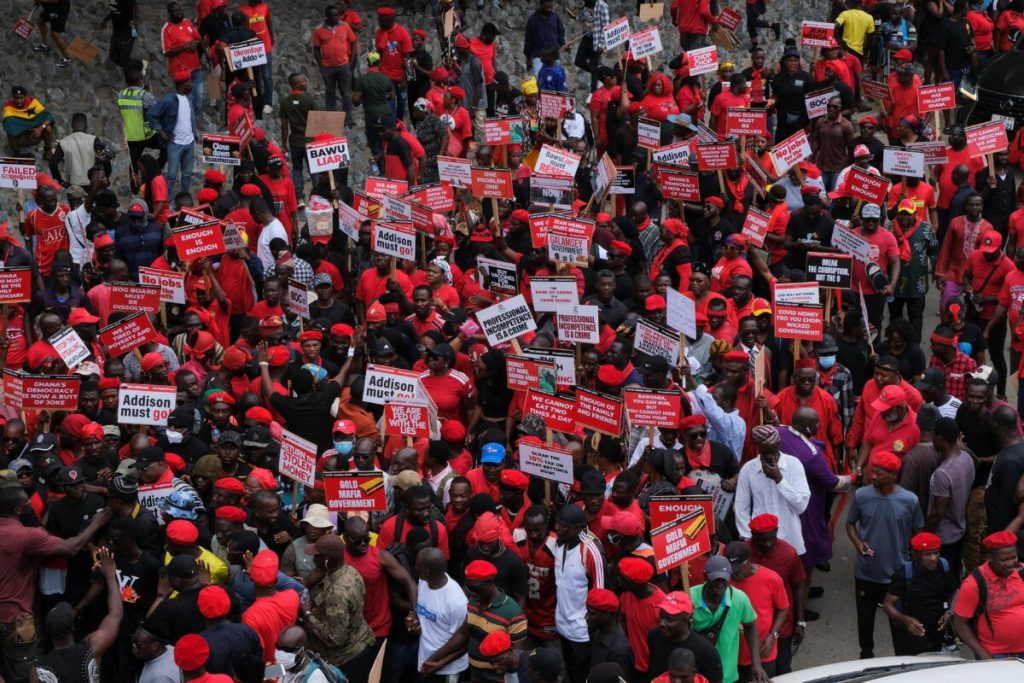Hundreds of people marched through Ghana‘s capital, Accra, on Friday in a peaceful protest against illegal gold mining, urging authorities to take action against the environmentally destructive and hazardous practice.
Known locally as “galamsey,” illegal small-scale gold mining has surged this year due to a nearly 30% increase in global gold prices.
According to Ghana’s mining sector regulator, small-scale mines produced 1.2 million ounces of gold in the first seven months of this year, surpassing the total output for all of 2023. However, the boom in galamsey has raised concerns due to its harmful effects on miners’ health, the pollution of water bodies, deforestation, the destruction of cocoa farms, and its link to criminal activities.

As Ghana prepares for a general election on December 7, the issue has become a significant political concern. The protest, dubbed an “environmental prayer walk,” saw hundreds of participants, who submitted a petition to the president’s office, calling for a ban on informal mining.
The march came after labour unions had planned a nationwide strike against galamsey earlier in the week. However, the strike was partially called off after the government made concessions, according to local media reports citing the organisers.
Ghana’s government is under pressure to address the concerns of voters, as the country grapples with its worst economic crisis in decades and a massive debt restructuring that has severely affected livelihoods. Outgoing President Nana Akufo-Addo has faced mounting challenges, with galamsey becoming a key electoral issue in the run-up to the vote.
Small-scale mining accounts for around 40% of Ghana’s total gold production, with an estimated 70%-80% of these operations being unlicensed.


